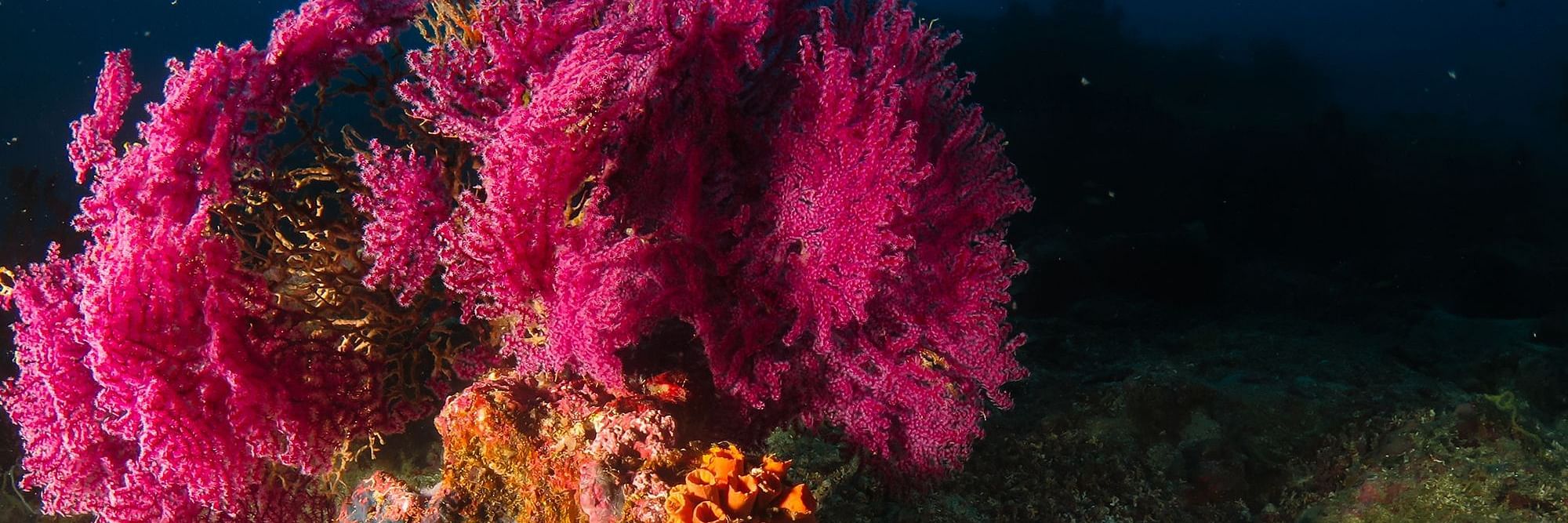FREQUENTLY ASKED QUESTIONS



Non-swimmers can experience the underwater world through the PADI Discover Scuba Diving program. We conduct this program in a 1:1 instructor-student ratio and the instructor will do all the swimming for you. All you need to do is master a few skills and be comfortable breathing with scuba, in which you will be adequately trained in shallow water where you can stand before going for the dive.
Kids as young as 8 years can participate in the PADI Bubblemaker program. For the PADI Discover Scuba Diving and PADI Open Water Diver certification course, one must be at least 10 years of age.
Anyone who is medically fit can dive and there is no upper age limit as such. However, people over 50 years are advised to consult a doctor and get a written medical certificate stating that you are medically fit for scuba diving.
Only a doctor can determine if a medical condition is minor or major and whether it would get aggravated by the underwater environment. Please consult a doctor and get a written medical clearance for scuba diving.
Unfortunately, only another physician can clear you for diving.
It depends on your certification level. PADI Discover Scuba Divers can go down to a maximum of 12 metres, while certified divers can go down to 18 metres if Open Water Diver and 30 metres if Advanced Open Water Diver. The recreational diver limit is 40 metres, however, only a Deep Speciality Diver can go down to this depth.
No, swimming is not mandatory for snorkelling. You will be provided with a life jacket, and our guides will assist you in the water to ensure you have a safe and enjoyable experience.
We recommend bringing:
- Swimwear (to wear under the wetsuit)
- A towel and toiletries
- Sunscreen (please ensure it’s reef-safe and does not have harmful chemicals that can kill corals)
- A change of clothes
- Refillable water bottle (we have water dispensers around the dive centre)
- Any personal medication you may need, with a doctor’s clearance.
You cannot wear regular glasses under a dive mask, but you can use contact lenses. Alternatively, we have optical masks available from -8 to -3 power. If you have a different prescription, we recommend getting your own optical mask. For prescriptions between -3 and 0, optical masks are not required since the magnification provided by the water is sufficient.
It is completely normal to feel uneasy at first. Our instructors will guide you through breathing exercises in shallow water before the dive to help you relax. Taking slow, deep breaths and focusing on your instructor’s guidance will help ease any discomfort. For medically diagnosed claustrophobia, we recommend consulting your doctor and getting a medical clearance for scuba diving.
Running out of air is extremely rare as you and your instructor will monitor air levels throughout the dive. Dives are planned in such a way that there will always be plenty of reserve air left in your tank even after the dive. To prepare you, however, you will be briefed about the out-of-air procedure and your instructor will guide you to safely ascend using their alternate air source.
Yes! Scuba diving is a very safe activity when conducted properly. Our team consists of certified PADI professionals who prioritise your safety. We follow strict safety protocols, use high-quality equipment, and conduct thorough pre-dive briefings to ensure a safe and enjoyable experience.
Ear discomfort is common and can be relieved by a technique called equalisation (pinching your nose and gently blowing). Your instructor will guide you on how to equalise properly before and during the dive.
For safety reasons, first-time divers and beginners should focus on their dive experience rather than handling a camera. However, we have dedicated dive professionals to capture photos/videos of your dive, and you can hire a photographer for the day if you want. For some programs, like the PADI Discover Scuba Diving and Bubblemaker, underwater photography/videography is complimentary.
If you're a certified diver, you can bring a GoPro or underwater camera with its underwater housing. To learn how to capture great underwater images and videos, you can join our PADI Digital Underwater Photographer speciality perhaps!